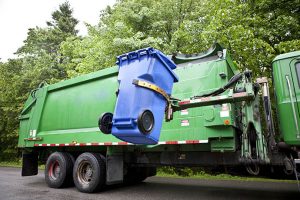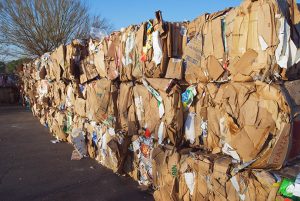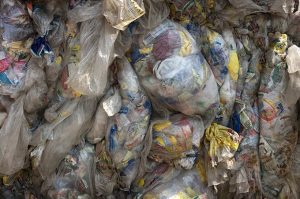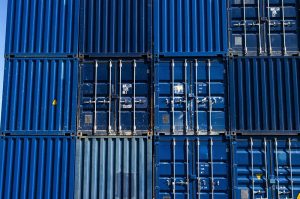
David Biderman, SWANA executive director
In a recent interview, SWANA leader David Biderman said communities don’t want to undo decades of outreach work and tell residents to stop putting certain items in the bin, even if China’s scrap policies are shaking up market realities.


 More than three months after China announced it will restrict recyclables imports, key details on logistics and timing of the new regulations remain unknown. But industry associations are piecing together some more concrete facts.
More than three months after China announced it will restrict recyclables imports, key details on logistics and timing of the new regulations remain unknown. But industry associations are piecing together some more concrete facts.
 The upstream impacts of China’s import restrictions have been increasingly covered in national and local press, raising the level of public consciousness about where recyclables ultimately end up and how that could all change.
The upstream impacts of China’s import restrictions have been increasingly covered in national and local press, raising the level of public consciousness about where recyclables ultimately end up and how that could all change. The U.S. OCC market plummeted last week as China substantially slows its recovered material imports. Inside China, the lack of import capability has driven domestic OCC prices sky high.
The U.S. OCC market plummeted last week as China substantially slows its recovered material imports. Inside China, the lack of import capability has driven domestic OCC prices sky high. Government officials have confirmed they are monitoring China’s import policy changes and are joining industry associations in seeking clarification from Chinese authorities.
Government officials have confirmed they are monitoring China’s import policy changes and are joining industry associations in seeking clarification from Chinese authorities. China’s import policy changes are forcing U.S. recycling companies to seek adjustments to municipal contracts, stockpile materials and even landfill recyclables.
China’s import policy changes are forcing U.S. recycling companies to seek adjustments to municipal contracts, stockpile materials and even landfill recyclables. For Sonoco Recycling, which collects, sorts, and sells recycled materials, China’s imports restrictions have particularly stung in one area: mixed-paper bales.
For Sonoco Recycling, which collects, sorts, and sells recycled materials, China’s imports restrictions have particularly stung in one area: mixed-paper bales. One report indicates that buyers in China are desperately seeking domestic sources of recovered paper. Meanwhile, low-value plastics are flooding the European market, but processors there have limited ability to handle those loads.
One report indicates that buyers in China are desperately seeking domestic sources of recovered paper. Meanwhile, low-value plastics are flooding the European market, but processors there have limited ability to handle those loads. A common complaint about China’s restriction on scrap materials imports is the lack of solid information about what exactly the upcoming ban will target. A Canadian plastics group is taking data-gathering into its own hands.
A common complaint about China’s restriction on scrap materials imports is the lack of solid information about what exactly the upcoming ban will target. A Canadian plastics group is taking data-gathering into its own hands.